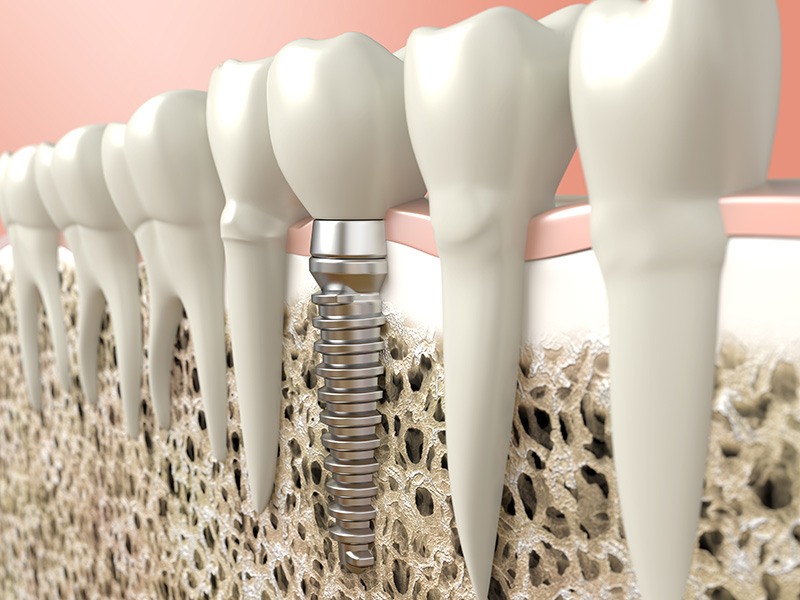Do you struggle to fully enjoy life due to missing teeth?
We understand the importance of a confident smile, and that’s why we offer tooth replacement options to help restore your smile and confidence. Replacing missing teeth can also improve your ability to chew and speak properly. With our dentist in Vancouver, you can discuss different options for tooth replacement, including dental implants, mini implants, fixed bridges, and removable or implant dentures.
Dental Implants
If you have lost a tooth or several teeth, you may be looking for a permanent solution that looks natural and functions like a real tooth. In this case, dental implants may be the right choice for you.
Dental implants consist of a small titanium post-surgically implanted into your jawbone. Over time, the post integrates with the bone, creating a stable foundation for a replacement tooth. Once the implant has healed and fused with the jawbone, a replacement crown is attached to the post, creating a natural-looking and fully functional tooth.
One of the great benefits of dental implants is that they can last a long time, even for the rest of your life, with proper care. Unlike dentures or bridges, dental implants do not require any special maintenance and can be cared for just like your natural teeth. Additionally, dental implants do not affect any surrounding teeth, as opposed to other tooth replacement options that may require grinding down healthy teeth for support.
If you are missing one or more teeth, talk to your dentist about whether dental implants may be a good option. With dental implants, you can enjoy a fully restored smile that looks and feels just like your natural teeth.
Implant Dentures
Implant dentures differ from regular dentures in that they are replacement teeth supported and attached to implants in the jaw rather than resting on the gums. This type of treatment is typically recommended when there are no natural teeth in the jaw, but enough bone is present to support the implants. Our clinic provides implant denture treatments in Vancouver, Surrey, and Langley, where our experienced dentists can assist you.

Fixed Bridge
If you have one or more missing teeth in a particular area, a fixed bridge could be a suitable option for you. This treatment involves filling the gap with an artificial tooth that is supported by the neighbouring natural teeth and attached to them using dental cement. With a dental bridge, you can enjoy the appearance and sensation of natural teeth.
Visit Inspire Dental Group
To learn more about customized dental bridges near you. We invite you to contact us or stop by our dental group during our hour of operation. We anticipate hearing from you!

